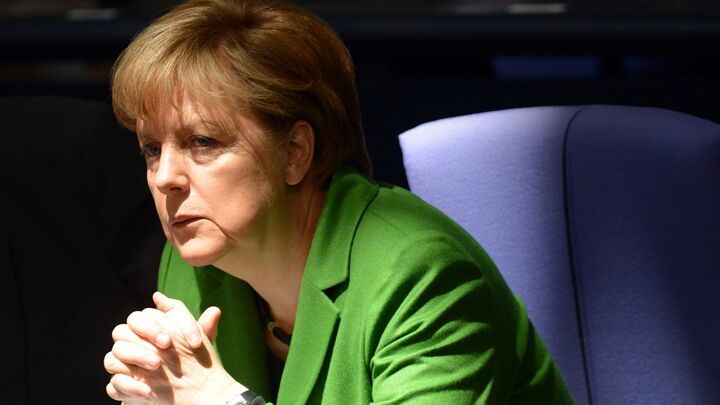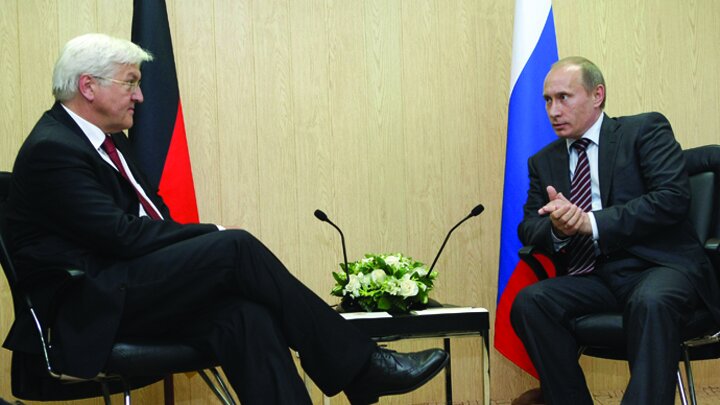
Is Germany Working on a Deal With Russia Over Ukraine?
Germany and Russia are secretly working on a deal to end the Ukraine crisis, Britain’s Independent newspaper reported July 31.
Russia promises to end its support for Ukrainian separatists, refrain from interfering with Ukraine’s relationship in the European Union, give Ukraine a billion-dollar financial package to compensate it for the loss of rent from Russia’s Black Sea Fleet, and sign a long-term gas deal with Ukraine. In return, Germany will persuade the international community to recognize Russia’s annexation of Crimea as legitimate, Ukraine would devolve some power to its regions, and it would also promise not to apply to join the North Atlantic Treaty Organization.
“This is [German Chancellor Angela] Merkel’s deal,” the newspaper quoted an anonymous insider as saying. “She has been dealing direct with President [Vladimir] Putin on this. She needs to solve the dispute because it’s in no one’s interest to have tension in Ukraine or to have Russia out in the cold. No one wants another Cold War.”
German government spokesman Steffen Seibert said this was not true, tweeting, “The report has no basis.”
The Independent claims that the destruction of the MH17 plane derailed negotiations, but that they could resume once the political fallout from the crash dies down.
“German peace plan is still on the table and the only deal around,” the Independent quoted anonymous insiders as saying. “Negotiations have stalled because of the MH17 disaster, but they are expected to restart once the investigation has taken place.”
Time will tell how serious the EU is about sanctions. They could reflect a genuine desire within Germany to stand up to Russia; however, they could also merely represent European leaders bowing to public anger.
But the way the Ukrainian crisis has played out to this point clearly shows that, compared to the rest of the West, Germany has a special relationship with Russia. Merkel has tried to reach out to Putin, playing the role of intermediary.
Here at the Trumpet, we’ve already speculated that Russia and Germany have some sort of arrangement, where Germany is keeping nato troops out of Georgia and Ukraine. In this light, Merkel’s alleged negotiations could be an attempt to change the terms of this arrangement in the wake of the popular uprising in Kiev.
In 2009, Trumpet news editor Brad Macdonald discussed the possibility of this kind of German-Russian deal in an article titled “Another Molotov-Ribbentrop Pact?” In it, he noted, “History is consistent on this point: Germany and Russia are not close friends.”

“There have been bouts of cooperation, such as the Treaty of Rapallo in 1922 and the Molotov-Ribbentrop Pact,” he wrote. “But these were marriages of convenience—forged out of mutual strategic necessity before major conflict—that always ended in divorce, often violent.”
This is exactly what we see today. Yes, that special relationship is there. But it is a fragile one. So Germany takes the lead in negotiating with Russia. And now they seem to be the one taking the lead on sanctions—Germany announced August 4 that it’s planning to pull the plug on a state-of-the-art military training camp it’s building in Russia. This goes beyond what is called for in the sanctions package the EU published last week.
As Mr. Macdonald wrote in his article, the key point here is that Germany is the head of Europe and doesn’t merely follow America’s lead—it’s an independent power in its own right. So when relations between America and Russia sour, the latter needs to start talking to Germany.
